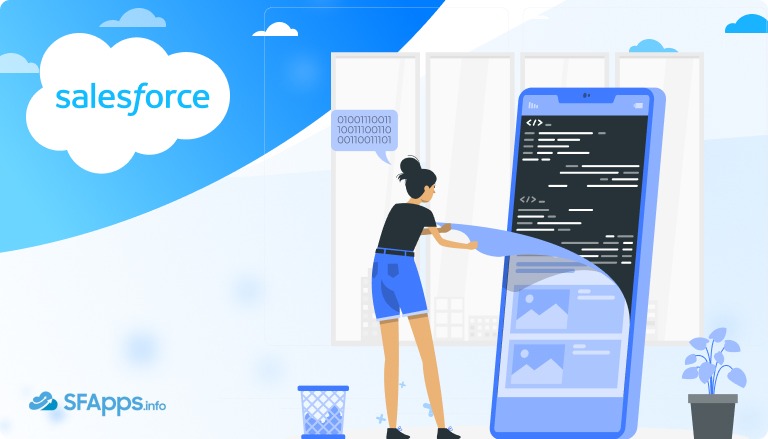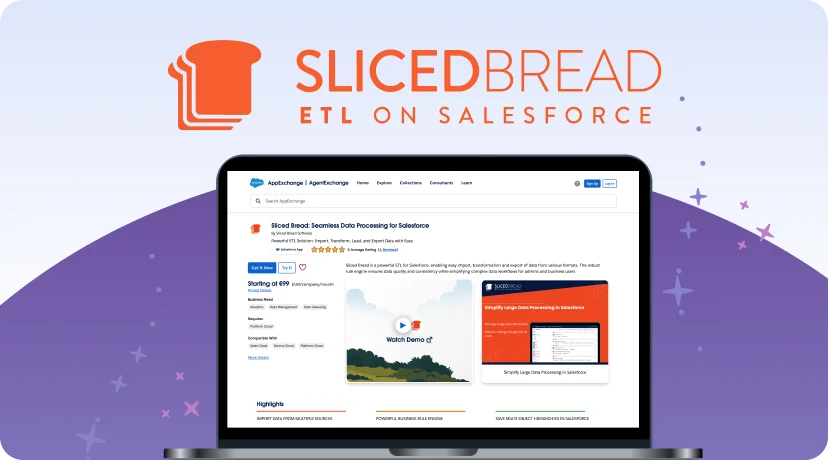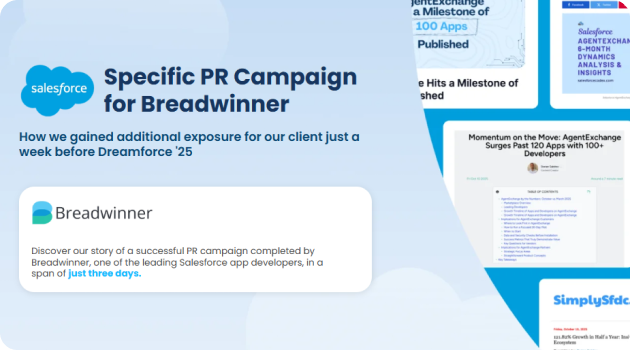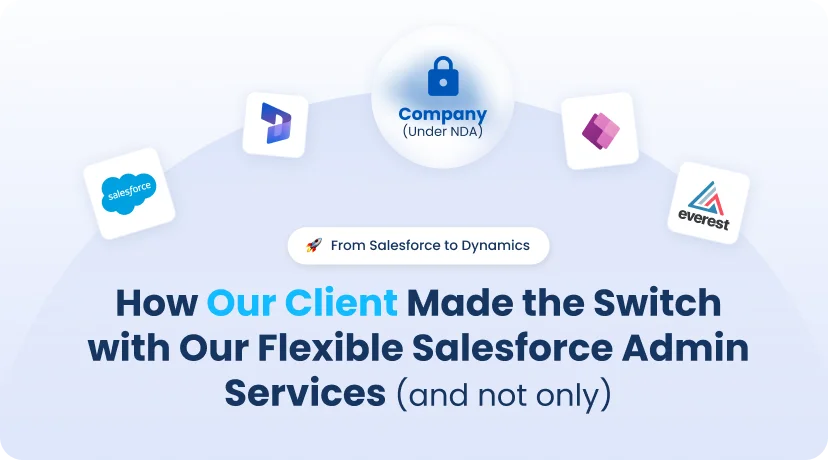
Salesforce AppExchange serves as the leading enterprise cloud marketplace, offering a vast array of ready-to-install applications, components, and consulting solutions designed to extend the capabilities of the Salesforce platform. As of this year, AppExchange features over 9,000 apps, has recorded more than 13 million installs, and includes over 157,000 peer reviews, helping businesses discover and implement the most suitable solutions for their needs. This proven ecosystem is trusted by over 90% of Fortune 500 companies and continues to drive digital transformation across industries. With the recent addition of AgentExchange, organizations can now also leverage trusted Agentforce partner solutions to quickly build and deploy AI-powered agents, further extending Salesforce’s role as a cutting-edge digital labor platform.
The strategic importance of AppExchange continues to grow in tandem with the broader adoption of cloud-based CRM systems. The global CRM software market is projected to expand from $254.89 billion in 2024 to $298.61 billion in 2025, reflecting a compound annual growth rate (CAGR) of 17.2%. This growth underscores the increasing reliance on platform ecosystems like AppExchange to deliver scalable, industry-tailored digital solutions. As part of this trend, many companies are choosing to hire Salesforce API developers to build custom integrations that connect their core systems with Salesforce more effectively.
Hiring certified and experienced AppExchange developers ensures that organizations maximize both the technical performance and commercial viability of their Salesforce applications. These professionals possess deep expertise in Lightning Web Components, Apex, and the Salesforce Metadata API, enabling seamless integration of apps into the broader Salesforce infrastructure. Moreover, AppExchange developers are required to follow the Security Review process, a critical quality control measure that guarantees enterprise-level security, scalability, and performance.
As the Salesforce AppExchange continues to evolve, the ability to leverage purpose-built applications will be a key competitive differentiator. Organizations seeking to deploy high-performing, user-centric Salesforce apps must therefore prioritize skilled AppExchange development talent to drive long-term platform ROI and ensure alignment with strategic business objectives. The decision to hire a Salesforce app developer is no longer optional; it is integral to success in the modern Salesforce ecosystem.
- Who Are AppExchange Developers?
- Main Responsibilities of a Salesforce AppExchange Developer
- When to Hire Salesforce AppExchange Developers
- Skills and Certifications Required for Salesforce AppExchange Developers
- Cost of Hiring a Salesforce AppExchange Developer
- Key Benefits of Hiring Salesforce AppExchange Partners
- FAQs
- What is the role of an AppExchange developer?
- How do AppExchange developers differ from general Salesforce developers?
- What certifications are essential for AppExchange developers?
- When should a business consider hiring AppExchange developers?
- How does hiring certified AppExchange developers impact project outcomes?
Who Are AppExchange Developers?
Salesforce AppExchange developers are certified professionals specializing in designing, developing, and deploying applications tailored specifically for the Salesforce AppExchange platform. These developers operate within the broader Salesforce App Cloud ecosystem, utilizing a robust set of tools including Apex, Visualforce, Lightning Web Components, and various Salesforce APIs to construct scalable and secure solutions that extend the native functionality of Salesforce. If you’re seeking to build powerful enterprise apps, hiring a skilled Salesforce app developer is a critical step toward maximizing platform potential.
Their responsibilities extend beyond traditional app development. AppExchange developers are accountable for aligning application features with Salesforce architecture guidelines, ensuring compliance with Salesforce security policies, and undergoing a comprehensive security review before any solution is listed on the marketplace. This process validates an application’s adherence to data handling, user authentication, and vulnerability mitigation standards, thereby ensuring that each AppExchange listing maintains enterprise-grade reliability.
Organizations aiming to hire Salesforce app experts now prioritize developers who not only possess technical proficiency but also demonstrate a deep understanding of how Salesforce solutions drive customer success. In this context, the role of the AppExchange developer is both technical and strategic, bridging the gap between platform functionality and evolving business requirements. For businesses seeking Salesforce App Cloud developers for hire, the focus must be on those with a track record of delivering compliant, high-performing, and commercially viable solutions that support long-term digital transformation goals.
Main Responsibilities of a Salesforce AppExchange Developer
Salesforce AppExchange developers fulfill a critical role in extending the Salesforce platform through secure, scalable, and compliant applications tailored for enterprise use. Their work encompasses both technical execution and adherence to platform governance, ensuring each solution aligns with Salesforce architecture and security standards. The following are the core responsibilities typically assigned to experienced AppExchange developers:
1. App Development
The foremost responsibility involves the design and implementation of Salesforce-native applications intended for distribution via the AppExchange marketplace. Developers leverage technologies such as Apex, Lightning Web Components, and SOQL to build modular and maintainable app architectures. Each application must meet strict usability and scalability criteria to address diverse industry needs. Organizations looking to build such advanced solutions often choose to hire dedicated Salesforce app developers to ensure both performance and quality.
2. Customization and Configuration
Beyond initial development, AppExchange developers are responsible for tailoring applications to accommodate industry-specific logic, user interface variations, and workflow customizations. This may include dynamic page layouts, custom metadata types, and modular configuration panels that enable flexible deployment across various Salesforce editions.
3. Integration with Salesforce and External Systems
A critical function of AppExchange developers is to ensure seamless integration with Salesforce core products and third-party systems. Utilizing REST, SOAP APIs, and the Salesforce Connect framework, developers facilitate real-time data exchange, authentication, and synchronization across multiple platforms. Effective integration is essential for aligning AppExchange apps with enterprise digital strategies and ecosystem interoperability.
4. Security Review Compliance
Each application intended for AppExchange must undergo a rigorous security review process, ensuring it adheres to Salesforce’s cybersecurity and data protection protocols. Developers are responsible for preparing applications to pass this review, addressing vulnerability scans, secure coding standards, and handling sensitive user data in compliance with platform guidelines.
5. Post-Deployment Maintenance and Support
After app deployment, AppExchange developers continue to monitor performance, resolve bugs, and issue updates in response to Salesforce platform changes or customer feedback. Continuous improvement is essential, particularly as Salesforce releases three major platform updates annually, each potentially affecting app functionality and compatibility.
By fulfilling these multifaceted responsibilities, AppExchange developers enable organizations to build tailored Salesforce applications that enhance user productivity, accelerate workflows, and comply with platform governance. Their contributions are indispensable in transforming Salesforce into a business-critical, vertically integrated solution suite. The decision to hire AppExchange developer directly correlates with an enterprise’s ability to deliver high-performing CRM enhancements aligned with business goals.
When to Hire Salesforce AppExchange Developers
Hiring Salesforce AppExchange developers becomes a strategic imperative in scenarios where businesses seek to extend platform functionality, differentiate digitally, or meet specific compliance and integration needs. The following use cases illustrate common situations in which organizations benefit from engaging specialized AppExchange development expertise.
Expanding Core CRM Capabilities
Organizations with growing operational complexity often encounter limitations in out-of-the-box Salesforce functionality. In such cases, hire Salesforce app cloud developers for custom AppExchange solutions allows for tailored extensions that address industry-specific workflows or regulatory requirements. For example, a healthcare provider may require HIPAA-compliant scheduling and patient data applications, which can only be achieved through custom development that passes the Salesforce Security Review. The ability to build, certify, and deploy purpose-driven tools positions AppExchange developers as critical to sustained platform utility and compliance.
Accelerating Go-to-Market for Productized Apps
Independent software vendors (ISVs) and Salesforce partners frequently require AppExchange developers to accelerate time-to-market for commercially distributed solutions. As of this year, the Salesforce AppExchange ecosystem includes over 200 ISV partners actively contributing to vertical-specific innovation. Hiring freelance AppExchange developers or dedicated teams enables these vendors to build, iterate, and maintain app listings efficiently while complying with Salesforce code security and upgrade lifecycle policies.
Integrating Salesforce with Third-Party Applications
Many enterprises operate within complex, hybrid software environments. In these contexts, hiring Salesforce app experts becomes necessary to develop integration-focused applications that bridge Salesforce with ERPs, data warehouses, or industry-specific tools. Leveraging MuleSoft, Salesforce APIs, or custom Apex services, AppExchange developers facilitate secure, bidirectional data flows that enhance operational visibility and reduce manual interventions.
Preparing for AppExchange Security Review and Compliance
For businesses aiming to list applications on the AppExchange marketplace, engaging experienced developers is essential for successfully navigating the AppExchange Security Review process. This involves rigorous assessments of code quality, data encryption, and third-party dependencies. Failure to meet these criteria results in delayed listings or outright rejection. Developers with proven experience in preparing for security audits ensure that applications are not only functional but also fully compliant with Salesforce trust standards.
Responding to Platform or Regulatory Changes
Salesforce’s triannual release cycle often introduces platform updates that require code adjustments to maintain compatibility and performance. Similarly, regulatory shifts in data privacy, such as GDPR or CCPA, can necessitate architectural changes to AppExchange applications. Businesses operating in dynamic regulatory environments must hire Salesforce application developers to ensure continuous compliance and uninterrupted user experience.
Consequently, organizations that anticipate growth, digital innovation, or platform complexity should consider hiring dedicated Salesforce AppExchange developers. Their expertise not only ensures seamless technical execution but also provides strategic resilience as platform standards and business environments evolve.
Skills and Certifications Required for Salesforce AppExchange Developers
Salesforce AppExchange developers are expected to demonstrate a blend of advanced technical competencies, platform fluency, and collaborative problem-solving capabilities. Their skill set directly influences the quality, performance, and compliance posture of the applications they deliver. Moreover, certifications play a pivotal role in validating their expertise and ensuring alignment with Salesforce development standards.
Technical and Soft Skills
Proficiency in Salesforce-specific programming languages is fundamental. Apex, a strongly typed object-oriented language, is essential for creating business logic and server-side functionality. Equally important is mastery of Lightning Web Components (LWC), which are used for crafting responsive, modular user interfaces. Familiarity with Visualforce remains relevant for legacy compatibility, although its use has declined in favor of LWC.
In addition to core coding skills, developers must understand the Salesforce Metadata API, which facilitates deployment, versioning, and integration of app components across environments. Integration knowledge, including REST and SOAP API utilization, is critical for enabling data flow between Salesforce and external systems. Moreover, expertise in Salesforce DX and scratch org development environments supports modular, source-driven development workflows.
Soft skills such as agile project management, cross-functional communication, and proactive debugging are essential in collaborative enterprise environments. As AppExchange applications often cater to varied industries and user types, the ability to translate abstract business requirements into tangible, compliant software solutions is indispensable. Businesses exploring Salesforce app developers for hire often prioritize candidates with both technical depth and effective communication skills.
Salesforce Certifications
Holding Salesforce certifications significantly enhances the credibility and effectiveness of AppExchange developers. The foundational Salesforce Platform Developer I certification validates skills in Apex, data modeling, and declarative development. The Platform Developer II credential builds upon this by testing advanced programming, performance optimization, and integration design.
For developers involved in packaging and releasing applications to AppExchange, the Salesforce App Builder and ISV Partner Trailhead modules are also essential. These certifications emphasize design thinking, UI development, and commercial app packaging processes aligned with AppExchange listing requirements.
Insight:
Certified Talent Demand: Developers with Salesforce certifications (like Platform Developer I & II) report 20–30% higher hiring rates than uncertified peers, showing the value of certified AppExchange expertise in the job market.
Together, these skills and credentials ensure that AppExchange developers are equipped not only to build compliant and innovative applications but also to sustain their performance across the evolving Salesforce release lifecycle. Organizations that hire Salesforce app programmers benefit from developers who can adapt to platform changes while maintaining application integrity.
Cost of Hiring a Salesforce AppExchange Developer
The cost of hiring a Salesforce AppExchange developer varies significantly based on factors such as geographic location, experience level, certification status, and project complexity. Enterprises seeking to hire Salesforce app developers must consider these variables to make informed budgeting decisions.
Regional Hourly Rate Comparison
The following table presents average hourly rates for Salesforce developers across key global regions, segmented by experience level:
| Region | Junior Developer (1–4 yrs) | Senior Developer (4+ yrs) |
| United States | $55–$65 | $80–$90 |
| Canada | $50–$55 | $70–$80 |
| United Kingdom | £30–£35 | £45–£50 |
| France | €30–€40 | €40–€55 |
| Germany | €27–€37 | €40–€48 |
| Netherlands | €40–€50 | €50–€60 |
| India | $25–$35 | $40–$50 |
| Singapore | $70–$80 | $90–$110 |
| Japan | ¥4,400–¥4,500 ($30–$32) | ¥4,600–¥5,000 ($32–$35) |
Data reflects average rates compiled in 2024 by Cyntexa’s global Salesforce developer report.
Factors Influencing Cost
Several key factors influence the hourly rates of Salesforce AppExchange developers:
- Experience and Expertise: Developers with extensive experience and specialized skills in Apex coding, Lightning components, and Salesforce integration command higher rates. Senior developers are often preferred for complex projects due to their ability to deliver robust solutions efficiently.
- Certifications: Holding relevant Salesforce certifications, such as Salesforce Certified Platform Developer or Salesforce Certified App Builder, can justify higher hourly rates. Certified developers are perceived as more competent and reliable.
- Project Complexity: Projects requiring advanced customization, complex integration, or data migration typically demand higher rates due to the increased effort and expertise involved.
- Geographical Location: The cost of hiring developers varies by region, influenced by local economic conditions and demand for Salesforce professionals. For instance, developers in the United States and Singapore generally have higher rates compared to those in India.
- Engagement Model: The choice between hiring a full-time employee, a freelancer, or engaging a consulting firm affects the overall cost. Freelancers may offer more flexibility, while consulting firms provide comprehensive services at a premium.
Understanding these factors is crucial for organizations aiming to hire Salesforce app experts or invest in a custom Salesforce developer app. By aligning project requirements with the appropriate level of expertise and considering regional cost variations, businesses can optimize their investment in Salesforce AppExchange development.
Key Benefits of Hiring Salesforce AppExchange Partners
Engaging certified Salesforce AppExchange partners offers substantial strategic and operational advantages for organizations aiming to build, deploy, and maintain high-performing applications within the Salesforce ecosystem. These benefits are particularly evident in complex enterprise environments where platform expertise, compliance readiness, and scalability are paramount.
- Proven Platform Expertise
Certified partners possess deep technical proficiency across the Salesforce platform, enabling them to deliver tailored solutions aligned with Salesforce architecture principles. As part of the official partner network, they have demonstrated success through multiple AppExchange listings and maintain up-to-date credentials in Salesforce development, security, and integration. - Accelerated Development and Deployment
Working with established AppExchange partners often reduces time-to-market for new applications. Their familiarity with Salesforce’s triannual release schedule and experience navigating the Security Review process ensures projects advance efficiently through planning, development, and listing phases. - Access to Salesforce Best Practices
Certified partners implement Salesforce-recommended methodologies for governance, deployment, and user adoption. This adherence to best practices reduces technical debt and promotes sustainable architecture, enhancing long-term application reliability and maintainability. - Enhanced Security and Compliance
AppExchange partners ensure that all applications meet Salesforce’s enterprise-grade standards for data privacy, user authentication, and vulnerability mitigation. Their ability to pass rigorous compliance audits instills confidence in enterprise buyers and minimizes risk exposure. - Ongoing Support and Platform Compatibility
With each new Salesforce release, application compatibility and performance must be reassessed. AppExchange partners proactively manage updates, ensuring continuous app availability and alignment with evolving Salesforce APIs and features. - Commercial Scalability
Organizations seeking to monetize their applications benefit from the go-to-market capabilities of certified partners. Many partners offer support with licensing, packaging, pricing strategy, and partner marketing through AppExchange.
FAQs
What is the role of an AppExchange developer?
An AppExchange developer is responsible for designing, building, and deploying applications that integrate seamlessly within the Salesforce platform and meet the requirements for listing on Salesforce AppExchange. These developers utilize tools such as Apex, Lightning Web Components, and the Metadata API to create secure, scalable, and compliant apps. Their work includes both backend logic and frontend user interface development, as well as the preparation of applications for Salesforce’s mandatory security review.
How do AppExchange developers differ from general Salesforce developers?
While all AppExchange developers are Salesforce developers by definition, their responsibilities are more specialized. AppExchange developers must follow strict packaging, versioning, and security protocols unique to the AppExchange ecosystem. They are also expected to support multi-org installations, manage ISV-specific tools, and comply with distribution guidelines for commercial applications, capabilities that are not typically required of general Salesforce developers.
What certifications are essential for AppExchange developers?
Relevant certifications that validate the expertise of AppExchange developers include Salesforce Certified Platform Developer I, Platform Developer II, and Salesforce Certified App Builder. These certifications cover foundational and advanced concepts in declarative development, programmatic logic, and secure app deployment. Holding one or more of these credentials is often a prerequisite for working on enterprise-grade AppExchange projects.
When should a business consider hiring AppExchange developers?
Businesses should hire AppExchange developers when building custom applications intended for commercial distribution, when integrating Salesforce with external systems at scale, or when extending native Salesforce capabilities for highly regulated industries. Moreover, enterprises preparing for AppExchange listing or security review benefit significantly from experienced developers who are familiar with the platform’s compliance expectations.
How does hiring certified AppExchange developers impact project outcomes?
Hiring certified and experienced Salesforce app cloud developers enhances project reliability, reduces time-to-market, and improves long-term maintainability. Certified developers are trained in Salesforce best practices, which results in more efficient development processes and greater alignment with Salesforce’s evolving platform standards.
In summary, organizations that prioritize skilled AppExchange development talent are better positioned to build secure, scalable, and commercially viable applications. These developers not only ensure technical quality but also provide the strategic insight needed to succeed in the competitive AppExchange marketplace.

Svitlana is a Communications Manager with extensive experience in outreach and content strategy. She has developed a strong ability to create high-quality, engaging materials that inform and connect professionals. Her expertise lies in creating content that drives engagement and strengthens brand presence within the Salesforce ecosystem. What started as a deep interest in Salesforce later transformed into a passion at SFApps.info where she uses her skills to provide valuable insights to the community. At SFApps.info, she manages communications, ensuring the platform remains a go-to source for industry updates, expert perspectives, and career opportunities. Always full of ideas, she looks for new ways to engage the audience and create valuable connections.






 Previous Post
Previous Post Next Post
Next Post